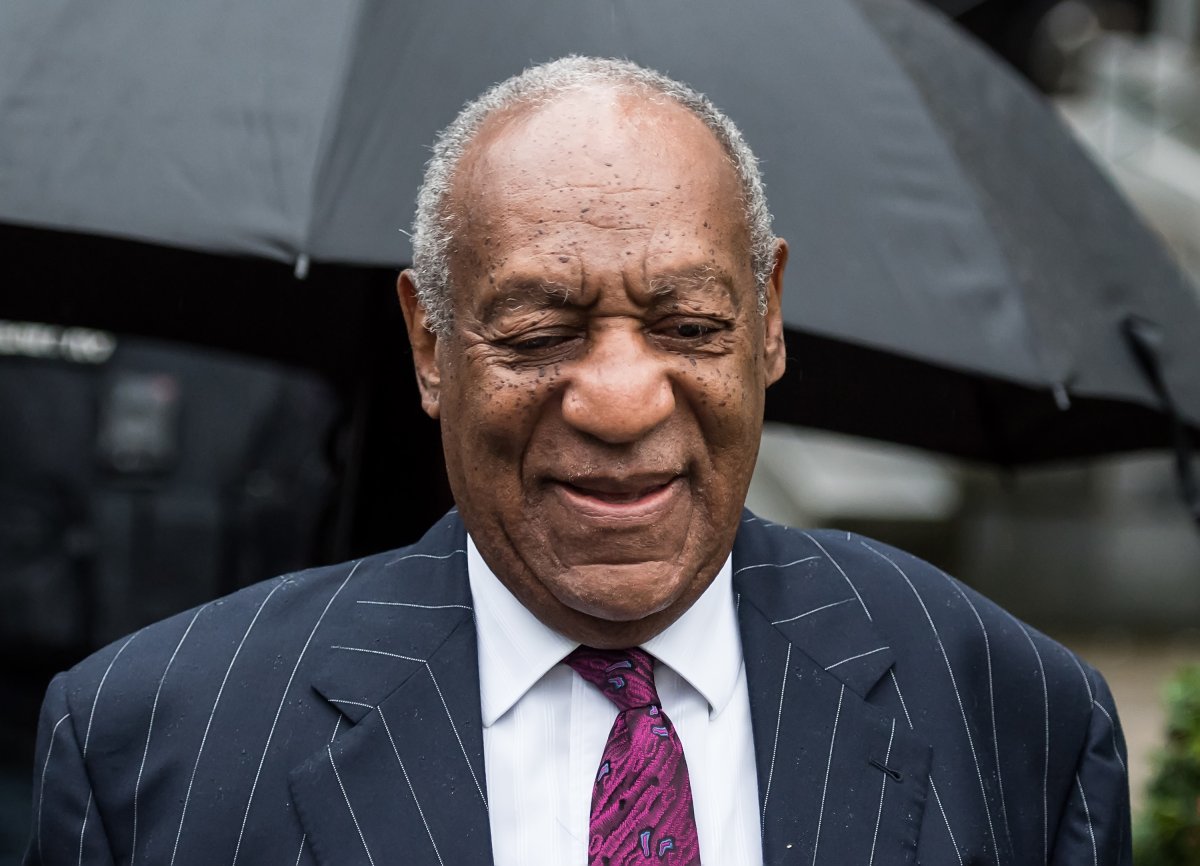Did you hear the one about the comedian who shortened his prison sentence because a prosecutor got too political? It's no joke. It's the reason the Pennsylvania Supreme Court just let serial sex offender Bill Cosby go free, despite his manifest guilt. And make no mistake: It's the mixing of law and politics that made this happen.
What do I mean by that? People around the country know Cosby well, but they likely don't understand the level of veneration he previously received in Philadelphia. Cosby made his home in the area and was the public face of his alma mater, Temple University; he was as ubiquitous as cheesesteaks and soft pretzels. Before he was "America's Dad," Cosby was unmistakably Philadelphia's hometown hero.
And it's here in Montgomery County, just north of Philadelphia, that Cosby was first accused of sexual assault back in 2005 by a single victim. It would be nearly a decade before other victims came forward publicly, which means the district attorney at the time, Bruce Castor, had to confront the kind of tough decision prosecutors make every day. With just a single accuser, Castor determined that a "he said, she said" prosecution—one with almost no other admissible supporting evidence brought against a popular local megastar—was not going to result in a unanimous panel of jurors returning a conviction.
What Castor saw was the door to holding Cosby accountable in this particular criminal case locked tight. So he opened another door: civil accountability and money damages for Cosby's victim. To help the victim's civil case, Castor promised to not prosecute Cosby for the alleged assault. With that pledge clearing the way, Cosby admitted to the misconduct and eventually paid $3.4 million in damages.
As a prosecutor, I've had to make similar decisions in sex offense cases. These assessments may be easy to critique from the armchair, but they are painfully difficult when made from the desk of the county's top law enforcer, who possesses limited resources and a daunting burden of proof.
I think Castor got it right.

And contrary to what you may have heard, his decision is not the reason Cosby is free. The blunder that allowed Cosby to escape the jailer's grasp—the mixing of politics into the legal system—came later, when the current Montgomery County District Attorney Kevin Steele imprudently used the non-prosecution decision as a political battering ram in his election campaign to defeat Castor. Steele acted like a candidate desperate to be elected, rather than a career prosecutor who must abide by professional ethics and previous commitments. Then, once he took over the office, Steele felt impelled to fulfill his campaign pledge to go after Cosby.
Steele blithely ignored Castor's covenant not to prosecute and pretended that commitments of the previous administration were somehow not binding on him. That ridiculous impulse runs afoul of the most basic notions of public administration as well as centuries of British and American court decisions.
Indeed, even when judges rode to court on horseback and read law books by candlelight, when a promise was made and someone else relied on and made decisions because of it, the promise was then—and is now—binding. The Pennsylvania Supreme Court essentially declared that government officials like district attorneys are similarly bound.
The ability to imprison Cosby for his predations might have been salvaged if the details of District Attorney Castor's agreement had been written and vetted with a judge. In other criminal cases, these immunity agreements are strengthened and clarified by statute and case law. Castor says there was no agreement, per se, just his decision not to go forward. But giving Cosby's attorneys a clear roadmap of where they could order their client to stop answering questions in the civil deposition would've allowed prosecutors to advance the cases of the other victims. The high court ruling essentially says, if the legal taint starts at the headwaters, the foul currents travel all the way downstream.
It's easy to forget how revered Cosby was in 2005, and how difficult it would be to convince zealous local admirers that he was some sort of secret sex predator. In the law school class I taught for two decades, I discussed this challenge of "cognitive dissonance" and how difficult it is for prosecutors to overcome. Filing charges makes for great headlines, but losing cases because the local jury pool never had an open mind makes the initial charging decision appear dubious.
Too much of this is driven by political factors. Nationally, far left activists are investing heavily in putting prosecutors in office who will be more political than professional and more activist than attorney. The question Cosby's release raises is a crucial one for prosecutors running for office: Will the campaign promises made by a prosecutorial wannabe with a partisan agenda set the stage for a dangerous criminal being able to dodge the reckoning of the justice system?
In this case, the answer was yes. The fault is not Castor's but Steele's. And we see more proof that mixing politics and the law can make for volatile, even dangerous results.
Mark R. Weaver is a prosecutor in Ohio who previously practiced in Montgomery County, Pennsylvania and later served as Deputy Attorney General of Ohio. He is the author of the book A Wordsmith's Work. Twitter: @MarkRWeaver.
The views expressed in this article are the writer's own.
Uncommon Knowledge
Newsweek is committed to challenging conventional wisdom and finding connections in the search for common ground.
Newsweek is committed to challenging conventional wisdom and finding connections in the search for common ground.





